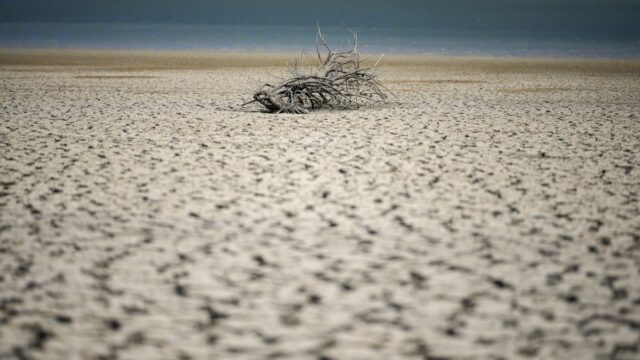Sicily produces 20% of the durum wheat used to make pasta and the drought has caused a drop in production on the island of 70%.
The island of Sicilyin southern Italy, has been affected by a year with almost no rainalong with record temperatures, which decreased forage production by 70% on the island, according to Italy’s main farmers association, Coldiretti.
The main water tanks are almost empty and local authorities have implemented strict water rationing. Sicily’s aqueducts are leaking and can lose up to 60% of their water flow, according to local water company AICA.
So while pipes and taps are empty due to rationing, local authorities they are supplying homes and farms with tankers.
“Here, in this pequeña cuenca, there has never been a lack of water. This is the normal level. Higher in winter, a little lower in summer. But there has always been water in this place. We do agriculture based on grazing, but now this is no longer possible“farmer Luca Cammarata told The Associated Press.
Is pasta production in danger?
Sicily is one of the granaries of Italy, since it produces 20% of the durum wheat used to make pasta. The drought has caused a drop in production on the island of 70%, according to Coldiretti estimates. This could cause greater dependence on importsinflation and more problems for local producers.
Mangiapane, a rancher for generations, has always been one of the farmers most combative in the areadefending the grazing of brown Modicana cows, a local breed, and advocating for small scale cheese production compared to industrial agriculture, in which many farmers keep cows locked in stables and feed them with grasses other than natural ones.
But this year’s water shortage was so intense and the heat so scorching that its forage production was destroyedand fears having to sell his animals if it does not rain during the month of August.
Mangiapane still has some reserves of hay, but every day he has to fight to find water. Frantic phone calls, long trips to distant wells and long waits for municipal tankers became his new, time-consuming routine.
“August is said to be the beginning of winter,” says Mangiapane, citing a Sicilian proverb. “August is the beginning of the new agricultural season. Hopefully it will be a little better than last season, because this year we have had to make a great effort, both financially and human resources, with zero benefits,” he says.
“And we can say that neither the regional nor the national government has taken measures,” he adds. In the coming months there is also fear of a drop in olive oil production and peach due to the drought, while the heat has caused the grape harvest to be brought forward almost four weeksbut so far without damage to the crops.
A dramatic year for Sicilian farmers
Coldiretti has donated 1.5 million tons of fodder to his Sicilian colleagueswhile the regional government has allocated subsidies to farmers forced to buy hay for their animals to third parties.
Resilient Sicilian farmers now hope this dramatic year will be an attention call so that the authorities adapt to the new climate situation.
The Sicilian meteorological service (SIAS) confirmed that throughout the month of June, temperatures were above average and frequently exceeded 40°C in many areas.
In May, the national government declared the state of emergency due to drought in Sicily and allocated 20 million euros to buy tankers, dig new wells and repair leaking aqueducts.







